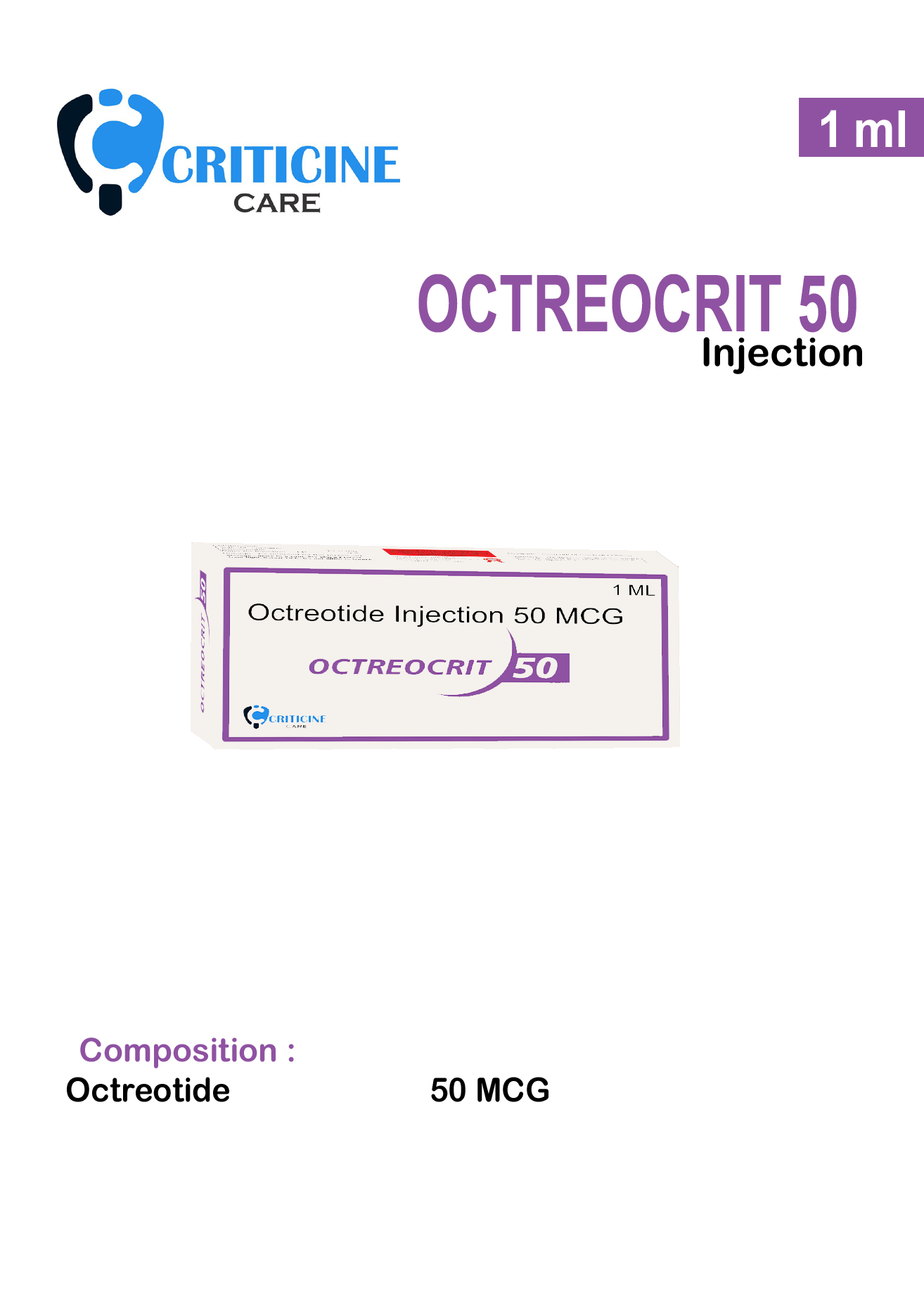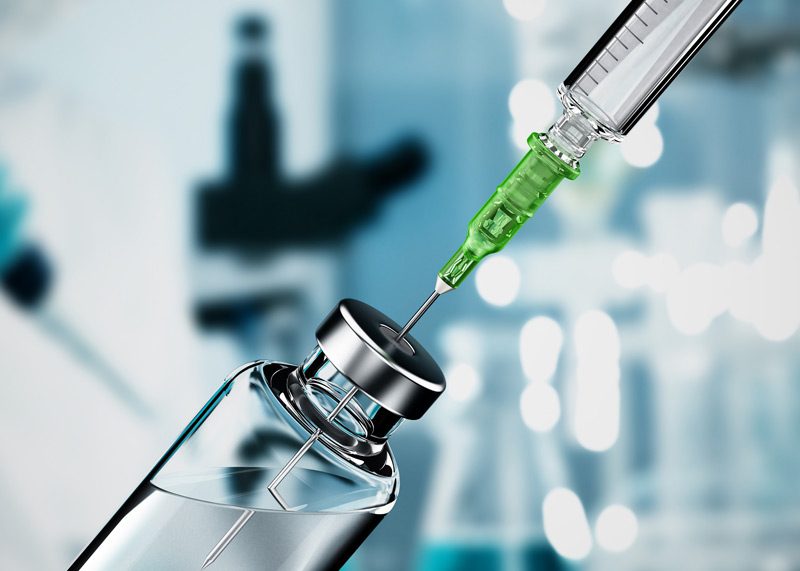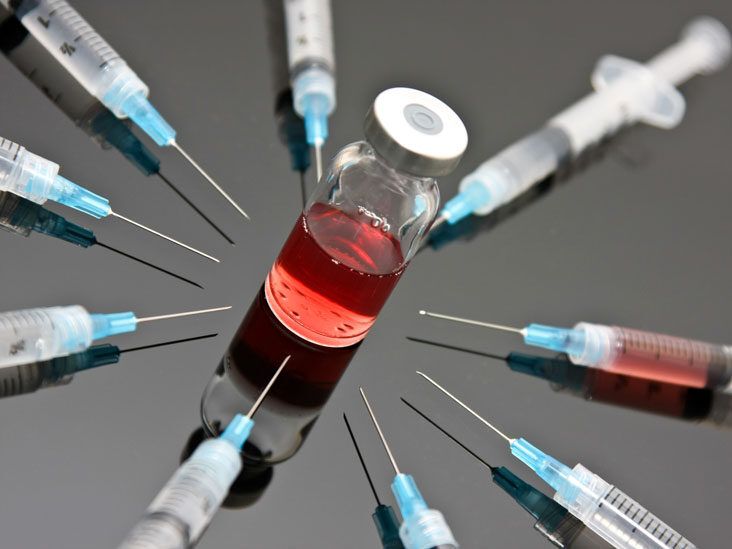- Plot No 351, Industrial Area Phase 2, Panchkula, Haryana
- Mail us - contact@criticinecare.com
- Call us at - 8264040991
- Home
- Critical Care Products | Injection | Range
- Octreotide injection
Octreotide injection
Octreocrit 50
A drug called octreotide injection is used to treat several ailments. It is a member of the somatostatin analogs drug class. Octreotide functions by preventing the body from releasing specific hormones like insulin and growth hormone. This drug is frequently prescribed to individuals with specific types of tumors to reduce diarrhea and flushing as well as symptoms related to the hormonal disease acromegaly. Additionally, it is used to lessen gastrointestinal secretions during several medical operations. Octreotide, which is frequently given as an injectable, can offer relief by balancing hormone levels and reducing associated symptoms.
Benefits Of Using Octreotide Injection
The following are some important benefits of using octreotide injection:
- Relief of symptoms: The injection, which is used to treat acromegaly, a disorder marked by excessive growth hormone production, is quite helpful in managing symptoms. It helps with symptoms like face changes, larger hands and feet, and joint pain.
- The injection is used to treat specific types of malignancies, including gastrointestinal tumors, pancreatic neuroendocrine tumors, and carcinoid tumors. It slows the growth of tumors and lessens the release of hormones that might lead to symptoms including flushing and diarrhea.
- Management of diabetes: The injection can be used to treat insulinomas, which are uncommon tumors that produce too much insulin. It assists in controlling blood sugar levels and avoiding hypoglycemia by blocking insulin release.
- In individuals with small bowel syndrome or those having specific medical procedures, the injection is used to regulate overactive gastrointestinal secretions. It can lessen fluid loss, avoid dehydration, and enhance gastrointestinal function in general.
- Various medical disorders, such as bleeding esophageal varices, which are dilated blood vessels in the esophagus, can be treated with octreotide as adjuvant therapy. Before receiving more serious treatment, it aids in reducing bleeding and stabilizing the situation.
- The injection is often well tolerated and causes few adverse effects. Reactions at the injection site, gastrointestinal discomfort, and minor hormone-related side effects are examples of common adverse effects. Serious adverse effects are uncommon, though.
How to use Octreotide injection
- Healthcare professional administration: In a clinical context, an Octreotide injection is normally given by a healthcare professional, such as a doctor or nurse. They have received training in safe injection administration and handling.
- Site of injection: The injection injection is often administered subcutaneously, or beneath the skin. The upper outer arm, thigh, or abdomen are typical injection sites. You will receive advice from your healthcare provider regarding the ideal injection site.
- Preparation: Your healthcare professional will provide you with comprehensive instructions on how to prepare the drug if you are delivering the injection at home. This can entail an aseptic technique, blending the solution, and taking the appropriate dosage.
- Technique for injection: Use an alcohol swab to clean the injection site, then let it air dry. Insert the needle at a 45-degree angle while pinching the skin. Inject the drug steadily and slowly. Remove the needle after the injection is finished, then gently push on the injection site with a sterile cotton ball or swab.
- To ensure proper disposal, place used needles and syringes in a sharps container. Never use a new needle or syringe.
How does the injection work
- The injection is a somatostatin analog that mimics the function of somatostatin, a hormone that the body naturally produces. It inhibits the production of hormones. It blocks the production of numerous hormones, including growth hormone, insulin, glucagon, and others, by attaching to somatostatin receptors on cells.
- Injections of octreotide are particularly successful at controlling growth hormone levels. In cases like acromegaly, when there is an overproduction of growth hormone, it controls the excessive production and release of growth hormone.
- The injection aids in the management of specific tumor types, including pancreatic neuroendocrine tumors and carcinoid tumors. These tumors frequently release hormones that result in symptoms like flushing and diarrhea. Octreotide works by preventing the release of these hormones, which reduces symptoms and slows tumor growth.
| Composition | Octreotide injection 50mcg/ml |
|---|---|
| Brand Name | OCTREOCRIT 50 |
| MRP | ₹290 |
| Packing | 1ml Vial Tray Pack |










